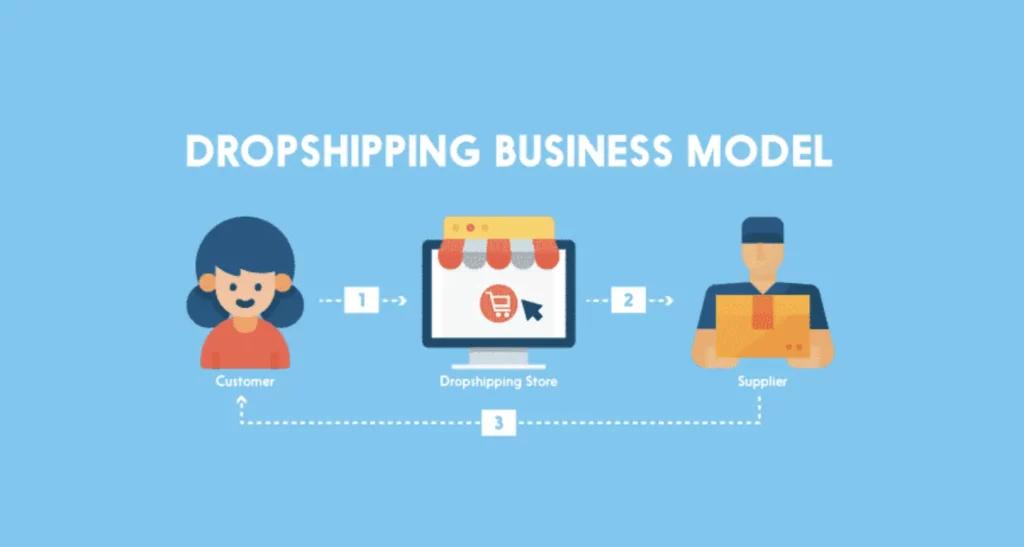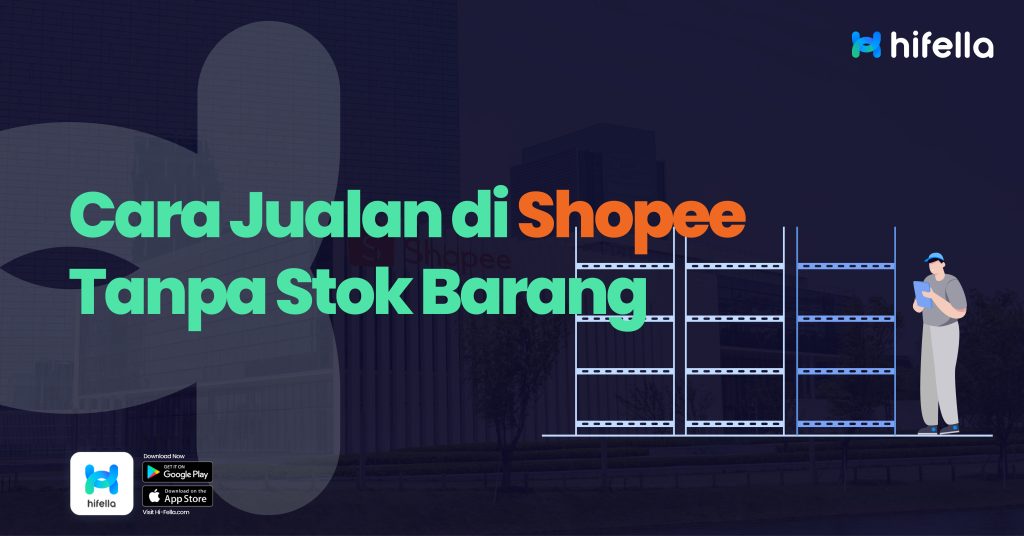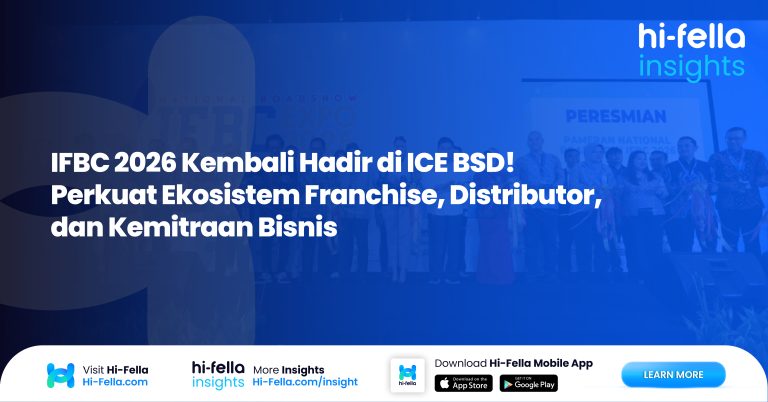Ingin mulai berjualan di Shopee tapi masih khawatir karena tidak memiliki modal atau produk? Tidak perlu khawatir! Mari pelajari cara jualan di Shopee tanpa stok barang atau mengeluarkan modal.
Dengan strategi ini, kamu masih bisa menjalankan bisnis dan menghasilkan pendapatan. Menarik, kan? Simak penjelasan berikut ini!
Cara Jualan di Shopee Tanpa Stok Barang melalui Dropshipping

Sumber: Hashmicro
Dropshipping adalah model bisnis yang memungkinkan kamu untuk menjual produk tanpa harus menyimpan stok barang.
Dalam model ini, sebagai dropshipper, kamu hanya bertindak sebagai perantara antara grosir atau produsen dan pelanggan.
Jadi, ketika pelanggan membeli produk dari tokomu di Shopee, Anda hanya perlu mengonfirmasi pesanan ke supplier, dan mereka akan mengirimkannya langsung ke pelanggan selama stok masih tersedia.
Anda sebagai penjual tidak perlu terlibat langsung dalam proses penyiapan, pengemasan, atau pengiriman produk.
Tertarik untuk mencoba cara jualan di Shopee tanpa stok barang ini? Berikut adalah langkah-langkah yang bisa kamu ikuti untuk memulai sebagai dropshipper di Shopee:
- Buat akun di Shopee dan atur toko pribadimu.
- Temukan toko di Shopee (supplier atau pemasok) dan ajukan kerjasama sebagai dropship.
- Tambahkan produk dari katalog supplier ke tokomu.
- Saat ada pelanggan yang memesan, beli produk tersebut dari toko supplier dan pada halaman ‘Pesanan Saya’, pilih opsi ‘Kirim Sebagai Dropshipper’.
- Isi data alamat pelanggan dan pada bagian pesanan, pilih ‘Kirim Sebagai Dropshipper’. Lengkapi informasi pengirim dengan nama dan nomor HP kamu, kemudian lanjutkan ke checkout.
- Selesai, produk akan dikirim oleh supplier ke alamat pelanggan dengan kamu sebagai pengirim.
Proses ini cukup mudah bagi kamu yang baru memulai bisnis online. Dropshipping di Shopee menawarkan banyak manfaat seperti kemudahan dalam mengelola pesanan tanpa perlu stok barang, pengemasan, atau pengiriman, serta meminimalisir modal yang diperlukan.
Kamu hanya membutuhkan HP, laptop, dan koneksi internet untuk menjalankan bisnis ini, membuatnya cocok sebagai bisnis rumahan yang fleksibel.
Memanfaatkan Jasa Penyimpanan dan Pengiriman Shopee

Sumber: Joglosemar News
Shopee menawarkan layanan penyimpanan dan pengiriman barang yang bisa sangat menguntungkan bagi penjual yang ingin cara jualan di Shopee tanpa stok barang secara pribadi. Dengan menggunakan jasa ini, kamu dapat:
1. Mengurangi Biaya Operasional
Dengan memanfaatkan jasa penyimpanan yang disediakan oleh Shopee, penjual dapat terhindar dari biaya sewa dan operasional lainnya yang terkait dengan penyimpanan barang. Tidak hanya menghemat uang, tapi juga mengurangi kerumitan dalam pengelolaan stok barang.
2. Meningkatkan Kecepatan Pengiriman
Salah satu keunggulan kompetitif terbesar yang ditawarkan oleh layanan ini adalah peningkatan kecepatan pengiriman. Shopee memiliki jaringan logistik yang terintegrasi di berbagai lokasi, memungkinkan pengiriman yang lebih cepat ke pelanggan.
Kecepatan pengiriman yang cepat ini tidak hanya meningkatkan kepuasan pelanggan tapi juga memperkuat reputasi toko kamu sebagai penjual yang dapat lebih diandalkan.
3. Fokus Pada Pemasaran
Mengurangi beban operasional melalui outsourcing penyimpanan dan pengiriman, memungkinkan penjual untuk mengalihkan fokusnya dan sumber daya yang lebih banyak ke upaya pemasaran dan pengembangan bisnis.
Kamu dapat menggunakan waktu dan tenaga yang sebelumnya berfokus pada logistik untuk menerapkan strategi pemasaran yang lebih inovatif, promosi penjualan, dan lainnya.
4. Meningkatkan Skalabilitas Bisnis
Dengan mengurangi keterlibatan langsung dalam proses logistik, penjual dapat lebih mudah meningkatkan jumlah produk atau kategori produk tanpa khawatir tentang masalah ruang atau manajemen logistik tambahan.
Hal ini memberikan fleksibilitas yang besar dalam skala bisnis, yang sangat penting dalam pasar e-commerce yang cukup kompetitif pada saat ini.
5. Manajemen Risiko yang Lebih Baik
Menggunakan jasa penyimpanan dan pengiriman Shopee juga berarti bahwa penanganan fisik barang, termasuk risiko kerusakan atau kehilangan selama penyimpanan dan pengiriman, ditanggung oleh Shopee. Hal ini secara besar dapat mengurangi risiko operasional yang harus ditanggung oleh penjual.
Kerjasama Strategis dengan Supplier
Memiliki kerjasama yang baik dengan supplier adalah kunci sukses dari cara jualan di Shopee tanpa stok barang. Berikut beberapa tips untuk membangun kerjasama yang efektif:
1. Negosiasi Kondisi Kerjasama
Pastikan kamu memiliki kesepakatan yang jelas mengenai harga, waktu pengiriman, dan kebijakan retur.
2. Jaga Komunikasi yang Baik
Komunikasi yang efektif dengan supplier akan membantumu terhindar dari kesalahpahaman dan juga dapat memastikan operasional berjalan dengan lancar.
3. Evaluasi Kinerja Supplier
Secara berkala, kamu dapat mengevaluasi kinerja supplier untuk memastikan bahwa mereka masih memenuhi standar dan kebutuhan bisnis yang kamu jalankan.
Kesimpulan Cara Jualan di Shopee Tanpa Stock Barang
Menerapkan cara jualan di Shopee tanpa stok barang dapat sangat menguntungkan jika dilakukan dengan strategi yang tepat.
Model dropshipping, pemanfaatan jasa fulfillment Shopee, dan kerjasama yang kuat dengan supplier dapat mengoptimalkan operasi bisnis kamu sekaligus dapat meminimalisir risiko.
Siap memulai bisnis di Shopee dengan modal minimal? Kamu juga dapat kunjungi platform Hi-Fella untuk menemukan lebih banyak informasi dan tips serta komoditas untuk ekspor impor barang!








